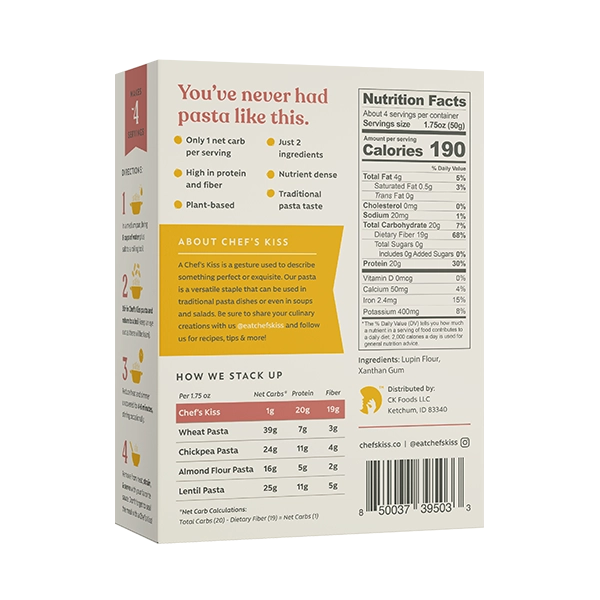
Is Intermittent Fasting Safe for Women? Exploring the Facts
Navigating Intermittent Fasting: A Woman's Perspective on Safety and Benefits
In recent years, intermittent fasting has emerged as a popular dietary approach, garnering attention for its potential health benefits. This practice involves alternating periods of fasting and eating within a consistent pattern over a week. While the concept may seem straightforward, its impact on women's bodies raises questions and concerns that warrant careful exploration.
Understanding Intermittent Fasting Methods
Intermittent fasting encompasses various methods, each with its unique approach to alternating fasting and eating windows. Let's delve into the most common practices:
Modified Fasting or the 5:2 Diet
This protocol involves fasting for two non-consecutive days per week, during which caloric intake is restricted to 20-25% of daily energy needs, typically around 500 calories. On the remaining five days, individuals can consume food without restrictions.
Alternate-Day Fasting
As the name suggests, this method alternates between complete fasting days, where no food is consumed, and non-fasting days, where individuals can eat normally without limitations.
Time-Restricted Eating
This approach confines the "eating window" to a specific period, typically 4-12 hours, inducing a daily fasting period of 12-20 hours. Individuals eat to satiety during their designated eating windows without caloric restrictions.
Among these methods, the 16:8 pattern, which involves eating within an 8-hour window and fasting for the remaining 16 hours, has gained significant popularity and is often recommended as a time-restricted eating pattern.
The Science Behind Intermittent Fasting
Much of the research on intermittent fasting explores its impact on the body's natural circadian rhythm, which is influenced by factors such as light exposure, eating behaviors, and the timing of meals. A growing body of evidence suggests that prolonged eating periods, ranging from 12-15 hours, may disrupt this rhythm and increase the risk of chronic diseases like heart disease, cancer, and type 2 diabetes.
Consequently, a primary goal of intermittent fasting, particularly time-restricted eating, is to reduce the time spent eating during the day by extending the overnight fasting period. This approach aligns with the principles of chrono-nutrition, the study of the relationship between circadian rhythms and food timing.
Potential Benefits of Intermittent Fasting
While more rigorous human research is needed, existing studies have highlighted several potential benefits associated with intermittent fasting:
Improved Cholesterol Levels
Findings from animal and human studies suggest that intermittent fasting has the potential to reduce total cholesterol, triglycerides, and LDL (low-density lipoprotein or "bad") cholesterol levels, while increasing HDL (high-density lipoprotein or "good") cholesterol. Elevated levels of total cholesterol, LDL cholesterol, and triglycerides are risk factors for heart disease.
Better Blood Sugar Control
Intermittent fasting can improve insulin sensitivity, leading to better blood sugar regulation. Experimental research on adult males with type 2 diabetes has shown the potential for intermittent fasting as a therapeutic approach that may reduce the need for insulin therapy.
Changes in Body Composition
Several studies have demonstrated that intermittent fasting can lead to weight loss of 3-7% of body weight within an average of 8 weeks. Additionally, research has noted that this method may result in fat loss, potentially easing metabolic syndrome, a cluster of risk factors that increase the chances of heart disease and type 2 diabetes.
Other Potential Health Benefits
Researchers are exploring the potential effects of intermittent fasting on various health areas, including inflammation reduction, longevity promotion, and support for neurodegenerative conditions like Parkinson's disease.
Potential Drawbacks and Side Effects
While intermittent fasting holds promise, it is essential to consider the potential downsides and side effects:
- Increased feelings of hunger
- Heightened irritability
- Worsened mood
- Increased preoccupation with food
- Fatigue
- Fears of losing control around food
- Overeating during eating windows
- Difficulty concentrating
Additionally, most of the research on intermittent fasting is based on animal studies, with limited high-quality human research available. A 2021 review found that only six out of 104 alleged health benefits of intermittent fasting were supported by moderate to high-quality evidence, highlighting the need for more rigorous long-term studies.
Comparison with Other Dietary Approaches
It is essential to note that intermittent fasting is not the only dietary approach that may yield similar benefits. Some research suggests that the health outcomes of intermittent fasting are no greater than those observed in calorie restriction diets, with outcomes for weight and fat loss, body fat percentage, and metabolic risk factors being comparable.
Moreover, the Mediterranean diet, renowned for its heart-friendly benefits, has been shown to reduce the occurrence of heart attacks and strokes by up to 30% after approximately 5 years of adherence. This diet also demonstrates protective effects against the development of various chronic conditions without the need for fasting.
Intermittent Fasting for Women: Unique Considerations
While intermittent fasting may offer potential benefits, women's bodies and hormones can be affected differently throughout the month, making this practice a more delicate area to navigate compared to men.
Hormonal Fluctuations and the Menstrual Cycle
Women's bodies operate on a monthly pattern, with a uterine and ovulatory cycle running in tandem, causing hormonal fluctuations within the body. These fluctuations can impact appetite and energy requirements, necessitating a more relaxed approach to fasting for women.
A study published in the Journal of Endocrinological Investigation indicates that gonadotropins, hormones responsible for moderating the follicular and luteal phases, can be disrupted by weight loss-related factors, potentially causing changes in reproductive functions, including anovulation and infertility.
Menstrual Cycle and Fasting Considerations
The menstrual cycle consists of four uterine stages: the proliferative stage, ovulation, the secretory stage, and menstruation. Over these stages, the ovaries are either in the follicular phase (from menstruation to ovulation) or the luteal phase (from ovulation to menstruation). Due to these constant hormonal fluctuations, intermittent fasting may not be suitable for women at every stage of the reproductive cycle.
Dr. Nirusa Kumaran, Medical Director & Founder of Elemental Health Clinic, advises caution when intermittent fasting during certain phases of the menstrual cycle. "During the week before the onset of your period, your estrogen levels start to decline if an egg is not fertilized," she explains. "The decline in estrogen can be stressful and cause a rise in cortisol levels. Adding extra stressors to the body, such as intermittent fasting, may be counterproductive."
Similarly, during the first three days of menstruation, when significant blood loss occurs, intermittent fasting may not be advisable as it can add additional stress to the body. Dr. Kumaran recommends waiting for the bleeding to subside before resuming intermittent fasting safely.
Potential Impact on Fertility and Hormones
Intermittent fasting may be associated with a decrease in the hormone estrogen, which can affect fertility and the ability to conceive. One of the primary reasons for this is believed to be the hormone kisspeptin, produced by the hypothalamus in the brain. Kisspeptin initiates a cascade of events that ultimately leads to the production of hormones like LH and FSH by the pituitary gland, responsible for the production of male and female sex hormones, testosterone and estrogen.
Studies have found that intermittent fasting may cause a decline in kisspeptin levels, leading to reduced estrogen production in women and potentially contributing to issues such as infertility and amenorrhea (absence of periods). Females are reported to have higher levels of kisspeptin compared to males, which may explain why women appear to be more sensitive to changes in kisspeptin levels.
Fasting During Pregnancy, Breastfeeding, and Trying to Conceive
If you are pregnant, breastfeeding, or trying to conceive, it is generally recommended to avoid intermittent fasting and any other restrictive diets. During these times, the priority should be to ensure adequate nutrition for both the mother and the developing baby or breastfeeding infant.
Polycystic Ovarian Syndrome (PCOS) and Intermittent Fasting
In women with PCOS, researchers have found that intermittent fasting may improve fertility due to improvements in insulin sensitivity and reductions in glucose and insulin levels. However, it is crucial to consult with a healthcare professional before attempting intermittent fasting, especially if you have a pre-existing condition.
Approaching Intermittent Fasting Safely for Women
If you decide to pursue intermittent fasting, there are several strategies to consider to enhance safety and effectiveness:
Prioritize Protein Intake
Ensuring adequate protein intake is crucial for maintaining a healthy metabolism, supporting muscle synthesis, and promoting tissue repair. A general guideline is to consume 0.8-1 gram of protein per kilogram of body weight per day. If you are skipping a meal due to intermittent fasting, it is recommended to increase your protein intake to 40-50 grams per meal.
Maintain Adequate Calorie Intake
While intermittent fasting may lead to a calorie deficit, it is essential to ensure that you are still meeting your total daily energy expenditure (TDEE) from nutritious, satiating, and healthy foods. Many women may underestimate their daily calorie needs, which can vary depending on age, life stage, stress levels, and activity levels.
Consider Favoring Breakfast and Lunch
If you plan to skip a meal during your fasting window, some experts suggest prioritizing breakfast and lunch over dinner. This approach may optimize energy production and muscle building by ensuring a high-protein intake early in the day when you are most active.
Listen to Your Body
Every woman's experience with intermittent fasting may be different. It is crucial to pay attention to your body's signals and adjust your approach accordingly. If you experience persistent fatigue, irritability, brain fog, mood swings, or other adverse symptoms, it may be an indication that intermittent fasting is not suitable for you at that particular time.
Seek Professional Guidance
Consulting with a healthcare provider or registered dietitian can help you understand your health goals and develop a safe and effective intermittent fasting plan that takes into account your unique needs and circumstances.
Intermittent Fasting: A Personal Journey
Ultimately, intermittent fasting is not a one-size-fits-all approach, and its suitability for women may vary based on individual factors such as hormonal balance, stress levels, and overall health status. While some women may find intermittent fasting beneficial, others may experience adverse effects or find it challenging to adhere to.
It is essential to approach intermittent fasting with caution, especially for women of reproductive age, and to prioritize overall well-being over strict adherence to any dietary regimen. By listening to your body, seeking professional guidance, and being mindful of potential risks and benefits, you can navigate the world of intermittent fasting in a way that aligns with your personal health goals and needs.

















